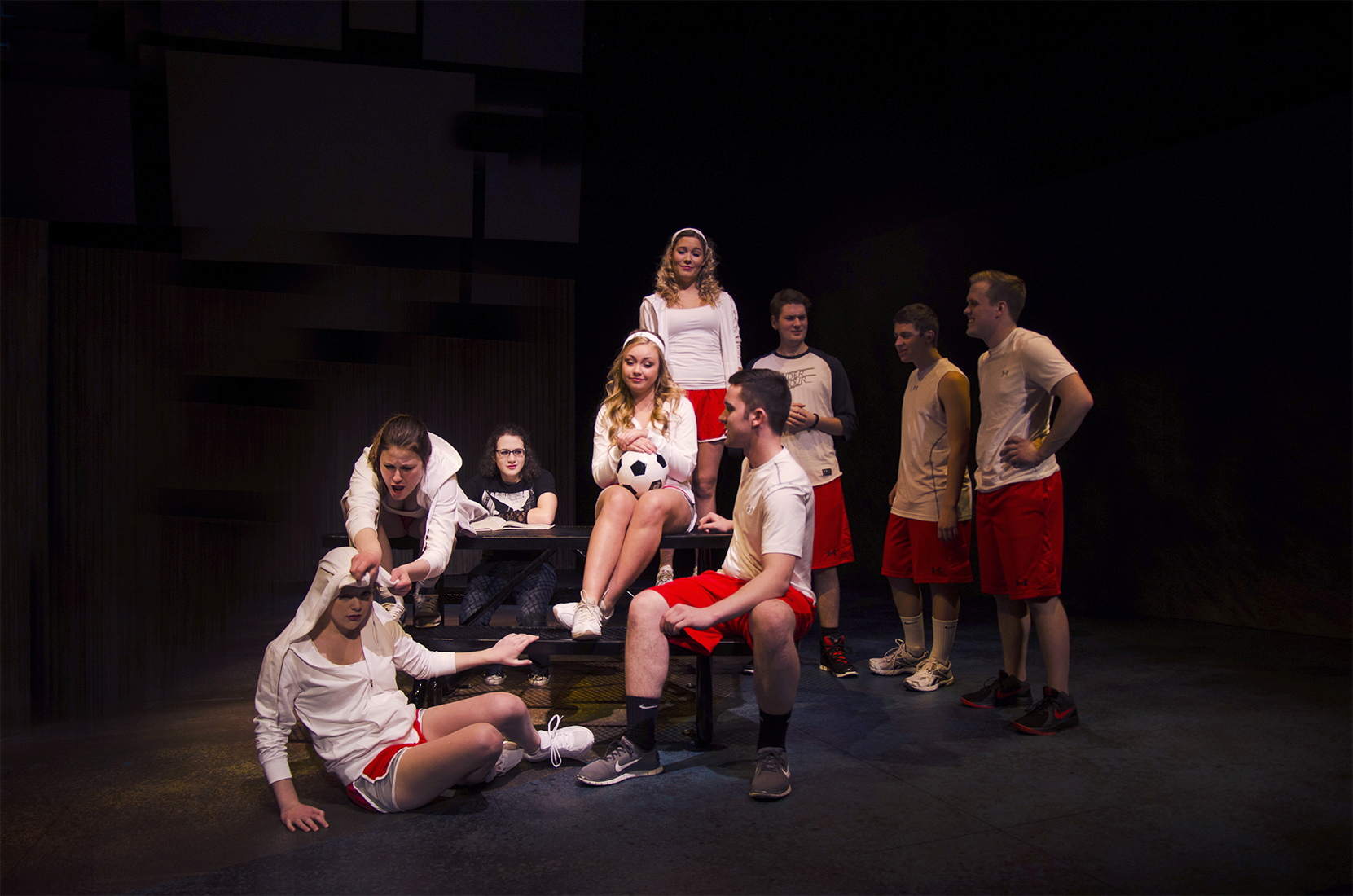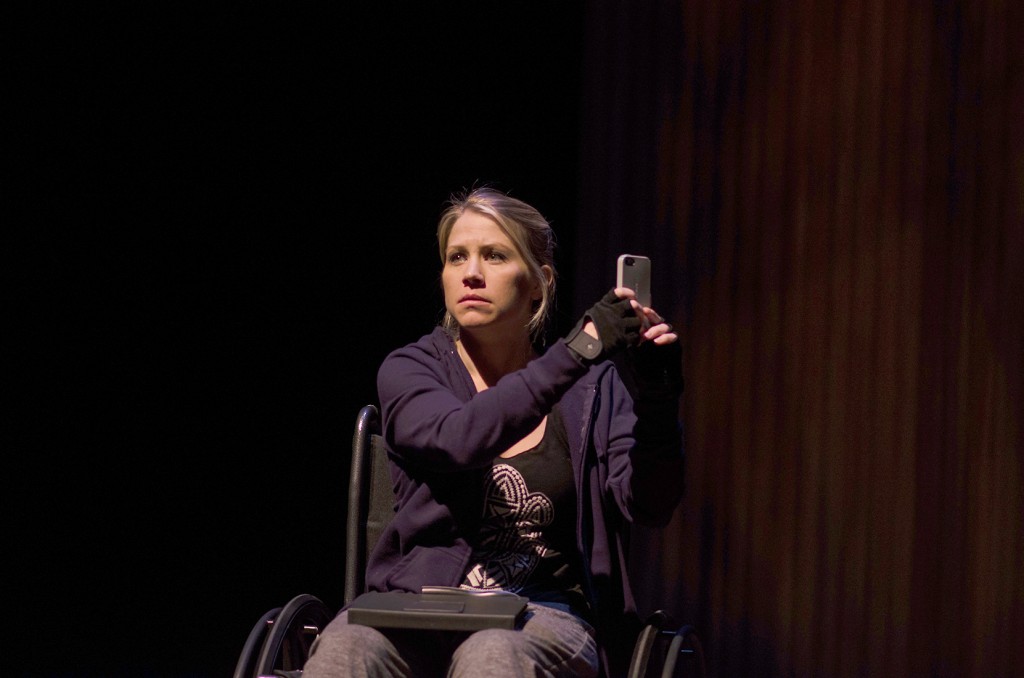Female playwrights spark discussions on university campuses with The Big Ten Theatre Consortium’s New Play Initiative.
Words by Stephanie Kocer | Photography Provided by the University of Iowa Theatre Arts Department | April 13, 2015
University of Iowa sophomore Taylor Stuart felt like she lost a friend when the theater department’s production of Good Kids ended in February. She played Chloe, a teenage girl who was raped at a party, and described her relationship with the character as a “metaphorical kinship.” The role itself, though, was hard, draining — but Stuart set that aside when she considered the play’s greater goal. “Knowing that people’s voices might finally be heard through this play is what really kept me going,” she says.
That’s been the goal not only for Good Kids, but also for the initiative that made it possible: the Big Ten Theatre Consortium’s New Play Initiative. The initiative selects professional female playwrights to create plays with strong female leads and even stronger themes. According to The Broadway League, 68 percent of theatergoers are women. In the 2012-2013 Broadway season, women directed only 14 percent and wrote only 10 percent of the shows. The university theater departments in the Big Ten Conference are aiming to change that.

The New Play Initiative started in 2010 with the idea of creating a performance piece that could be done at several, if not all, of the universities in the conference. “We thought that we could do something together that none of us could do individually,” says Alan MacVey, chair of the Theatre Arts Department at the University of Iowa. “My idea at the time was to find a way to not only encourage the writing of plays by women, but also to encourage plays to have multiple women’s roles in them — good roles for women.”
Male-heavy casts drive many productions. Take any of the big Broadway hits of the last decade: The Book of Mormon, Rock of Ages, Jersey Boys. In the Big Ten plays, though, actresses won’t merely be someone’s wife, sister, or mistress. In fact, the initiative has guidelines to ensure female students play a leading lady: the Eliza Doolittle, the Maria von Trapp, the Roxie Hart. Each play must have at least six female roles.
The first play commissioned was playwright Naomi Iizuka’s Good Kids, which has now been performed at several Big Ten schools, including the University of Michigan, Indiana University, University of Wisconsin – Madison, and University of Iowa. Iizuka was on board the moment she got the call from MacVey. “I thought it was extraordinary. And I said yes,” Iizuka says.
Iizuka started writing her play in 2012, shortly after a notorious rape case in Steubenville, Ohio, made national news. Good Kids takes place after a high school party where a teenage girl is raped by a group of football players, much like the events that happened in Steubenville. “I wanted to write a play about not just sexual assault, but the attitudes and perceptions that create a climate around sexual assault,” Iizuka says. “Sadly, even during the time that I was writing Good Kids, a lot of other sexual assault cases came to the surface. There were cases all over the country.”

The play doesn’t end with clear answers. Audiences have to make their own decision at curtain call about which character to believe. Stuart, the University of Iowa actress, says she noticed many conversations about sexual assault start on campus because of the play, and as an actress, she saw it as her responsibility to ignite them. “I saw this role as my social duty as a woman, a feminist, and an advocate of social change and sexual assault combatants. I initially auditioned for the role for the issue,” she says. “I think that as artists, the most important and meaningful thing that we can do is use our art to reframe thinking and change people’s perspectives on social issues through our craft.”

The New Play Initiative has commissioned two more plays: Writer Kirsten Greenidge’s play Baltimore, about race on college campuses, takes the stage next. She’s delivered her script to the theater departments, and MacVey says he expects it will make its debut as early as next year. The third playwright, Rebecca Gilman, is working on a script for the 2016-17 school year.
Iizuka says she sees the initiative as a chance for university actresses to play more than the damsel in distress or the best friend, and use their skills to bring a voice to issues their peers shy away from. “I think people who have a lot of experience going to the theater don’t realize how potent of a tool theater can be,” Iizuka says. “Not in terms of hearing a story about an issue, but as a forum for conversation, as a sort of jumping-off point for political engagement and, potentially, social change,” Iizuka says. “I think changes in attitudes and perceptions happen one conversation at a time.”


